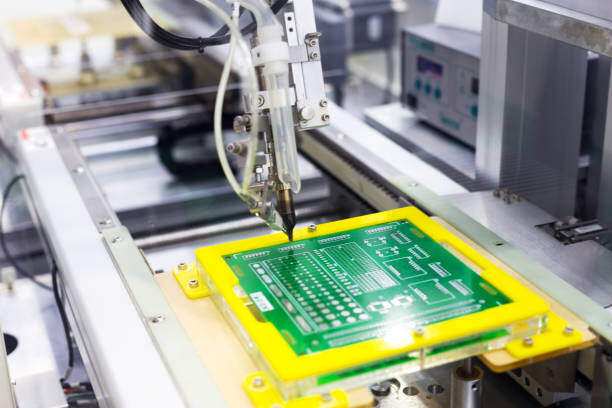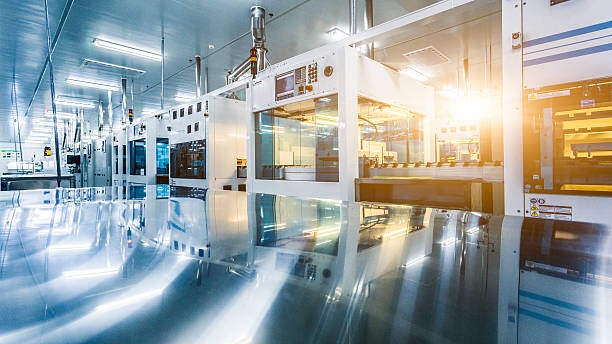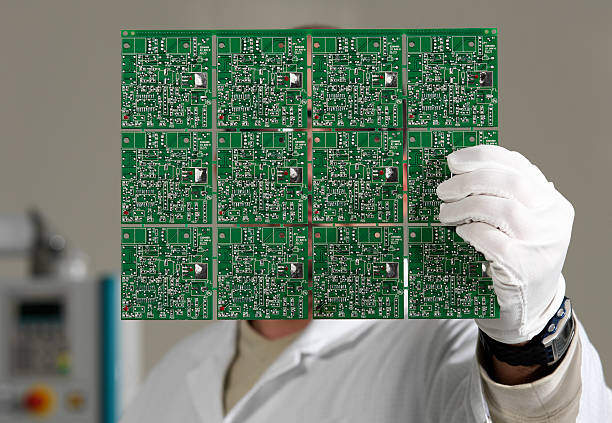In today's highly competitive market for electronic products, choosing a suitable PCB (Printed Circuit Board) manufacturer is a crucial step to ensure product quality and success. As the core component of electronic devices, the quality, reliability, and performance of PCBs directly impact the overall performance and market competitiveness of the final products.

However, when it comes to selecting a PCB manufacturer, one important question arises: should you choose a domestic manufacturer or an international one? With the ongoing globalization and technological advancements, both domestic and international manufacturers offer their own advantages and disadvantages. Therefore, to make an informed decision, it is essential to carefully weigh various factors and understand the pros and cons of these two choices. This article aims to explore the issue of choosing a suitable PCB manufacturer and provide some useful guidelines to help you make wise decisions between domestic and international manufacturers. We will delve into the advantages and disadvantages of domestic PCB manufacturers and international PCB manufacturers, as well as highlight key factors to consider during the decision-making process. Selecting the right PCB manufacturer is crucial for the success of your product development journey. A reliable manufacturer will ensure that your PCB meets high-quality standards and is delivered on time, allowing your product to stand out in the market. Therefore, continue reading this article to learn how to make informed choices between domestic and international manufacturers to meet your requirements and achieve success.
Lower costs: Domestic manufacturers can typically offer more competitive prices. This is because they can leverage local resources and labor, reducing transportation and related expenses. Compared to international manufacturers, domestic manufacturers are more cost-effective.
Faster delivery time: Choosing a domestic manufacturer can significantly reduce delivery time. With shorter physical distances, the transportation time is reduced, which helps shorten the overall product development cycle. Especially in cases of urgent delivery requirements, domestic manufacturers can respond and meet the demands more quickly.
Language and cultural advantages: Collaborating with domestic manufacturers eliminates communication barriers and cultural differences. Native language communication tends to be more accurate and efficient, avoiding misunderstandings and unnecessary delays. Additionally, domestic manufacturers have a deeper understanding of the local market and industry, allowing them to provide solutions that are more tailored to specific needs.
High-quality standards are an important advantage of choosing international PCB manufacturers. International manufacturers often meet various certifications and compliance requirements to ensure their products adhere to global standards. Common certifications include ISO 9001 for quality management systems, ISO 13485 for medical device quality management systems, as well as industry-specific standards like IPC-6012 and IPC-A-600 for PCBs. These certifications ensure that manufacturers follow stringent quality management and control measures throughout the design, production, and delivery processes, providing products that meet quality standards. International manufacturers typically use high-quality materials to manufacture PCBs. They collaborate with reliable suppliers to select suitable substrate materials, electronic components, and soldering materials that meet requirements. This helps ensure product reliability, stability, and longevity. International manufacturers have strict quality control processes in place, incorporating checks and tests at various stages from design validation to production and final inspection. They employ advanced inspection equipment and instruments such as X-ray inspection and automated optical inspection to ensure PCB quality meets standards. Additionally, they often implement rigorous statistical process control (SPC) and Six Sigma quality management methods to drive continuous improvement and optimize production processes. International manufacturers typically possess robust product traceability capabilities, enabling them to track and record every step from raw materials to the final product. This is crucial for investigating and resolving quality issues and helps elevate overall quality management. International manufacturers prioritize continuous improvement, constantly introducing new technologies and processes to enhance product quality. They may invest in research and development, engage in collaborative research projects with customers to meet evolving market demands and technological challenges. Advanced technology and innovation are significant advantages of international PCB manufacturers.

International manufacturers often invest in state-of-the-art production equipment and process technology. They may utilize advanced automation, precise lithography and etching processes, high-precision drilling and milling techniques, and more. These advanced technologies enhance production efficiency, reduce lead times, and ensure consistent quality of the PCB products. With the continuous development of electronic products, there is a growing demand for high-density interconnect capabilities in PCBs. International manufacturers may employ advanced techniques such as multilayer stacking, fine line width and spacing, blind and buried vias, and more, to achieve higher circuit density and smaller form factors. These technologies enable them to meet the requirements of complex circuit layouts and provide enhanced functionality and performance. International manufacturers actively explore and adopt new materials to enhance PCB performance and reliability. For example, they may utilize high-temperature materials to withstand high-power applications or employ specialized dielectric materials to improve signal transmission speed and noise suppression. By leveraging new materials, international manufacturers can offer advanced and reliable PCB solutions to their customers. Packaging technology plays a crucial role in PCB performance and overall product design. International manufacturers may drive innovation in packaging techniques to meet the needs of different applications. They might provide various packaging options, such as BGA, CSP, QFN, and more, enabling smaller form factors, higher integration, and improved thermal management. These innovative packaging technologies offer greater design flexibility while enhancing product reliability and performance. International manufacturers may possess advanced reliability design and testing capabilities. They may employ rigorous reliability engineering approaches that consider environmental factors, temperature cycling, vibration, and shock, among others, affecting PCB performance. By utilizing advanced reliability testing equipment and methodologies, they conduct stringent tests to ensure the long-term stability and reliability of PCB products. In summary, international PCB manufacturers excel in advanced technology and innovation, allowing them to provide high-quality, high-density, compact, and reliable PCB solutions. Their continuous technological advancements cater to the evolving demands of electronic products, offering customers innovative solutions. Thus, choosing an international manufacturer becomes an ideal option for many projects. When choosing an international PCB manufacturer, their experience in international business is an important advantage. International manufacturers typically possess efficient logistics and supply chain management capabilities. They are familiar with the requirements and procedures for international transportation and have established partnerships with various logistics service providers. They can ensure the safe and timely arrival of raw materials and finished products to meet customer demands. International manufacturers are often well-versed in regulations and certification requirements of different countries. They understand environmental standards, product safety requirements, and industry norms in various countries and regions. Therefore, they can assist customers in ensuring their products comply with local regulations and obtaining necessary certifications and approvals. International manufacturers have extensive experience in communication and collaboration with clients. They face challenges of different languages, cultures, and business practices, and can adapt flexibly to various communication methods. Their teams may consist of professionals with multilingual abilities and cross-cultural backgrounds, enabling smooth communication with clients, understanding their needs, and providing solutions. International manufacturers often have offices, factories, or partner networks in multiple regions. This allows them to leverage local resources and support, such as suppliers, technical experts, and market insights. These local resources and support networks provide customers with a broader range of options and comprehensive services. International manufacturers prioritize the establishment of quality management systems and processes. They may have ISO certification or other international quality management certifications to ensure product consistency and reliability. Additionally, they regularly undergo independent quality audits and verifications to maintain their quality standards and drive continuous improvement. In conclusion, choosing an international PCB manufacturer with experience in international business offers numerous benefits. They can handle complex international logistics and supply chains, ensure compliance and certification requirements, optimize cross-cultural communication and teamwork, utilize local resources and support networks, and implement strict quality management and audits. These advantages contribute to ensuring high-quality and reliable products that meet customer demands in the global market.

It is crucial to clarify your product requirements before selecting a suitable PCB manufacturer. The following are key steps to detailed describe your product requirements:
Determine the production scale: Decide whether your product requires large-scale mass production or small-batch production. This will impact on the capabilities and experience of the manufacturer you choose. If you need a large quantity of PCBs, it is important to find a manufacturer with extensive production capacity and experience. For small-batch production, look for manufacturers that offer flexibility and quick delivery. Define quality standards Specify your product's quality requirements, including the desired quality standards, reliability, and performance indicators. Consider the industry and application area of your product to understand the relevant quality requirements and certification standards. For example, PCBs used in the automotive industry may need to comply with the ISO/TS 16949 quality management system certification. Consider the urgency of delivery time Evaluate your product development timeline and the urgency of delivery time. Consider the competitive market environment and customer expectations regarding delivery times. If prompt delivery is crucial, choosing a manufacturer capable of timely delivery is essential. Understand the manufacturer's production cycle and delivery time to ensure they can meet your time requirements. Special requirements Consider whether your product has any special requirements, such as complex layer structures, high-frequency circuits, high-speed signal transmission, or multilayer stack-up boards. These special requirements may necessitate manufacturers with advanced technology and expertise. Ensure that the chosen manufacturer has the capability and experience to handle these special requirements. Cost budget Determine your cost budget for PCB manufacturing. Understand the limitations of your budget and make reasonable cost considerations when selecting a manufacturer. However, it is important not to choose a manufacturer solely based on the lowest price, as factors such as quality and delivery time should also be considered. By providing a detailed description of your product requirements, you can have a clearer understanding of the capabilities and characteristics needed in a PCB manufacturer. This will facilitate better decision-making and comparisons. This will help ensure that you select a manufacturer that is suitable for your product requirements and achieve success in your product development process. Researching Suppliers Conducting thorough research is essential before choosing a suitable PCB manufacturer. Identify Potential Domestic and International Manufacturers Utilize various channels to identify potential domestic and international PCB manufacturers, including but not limited to Search Engines: Use keywords such as "PCB manufacturers" or "PCB production" to gather a comprehensive list of potential manufacturers. Industry Directories and Exhibitions: Refer to relevant industry directories and exhibitions, as they often provide reliable manufacturer listings. Social Media and Online Forums: Look for discussions and recommendations in social media platforms and online forums related to the industry, gaining insights from others' experiences. Consider Technical Capabilities, Experience, and Certifications Once you have identified some potential manufacturers, evaluating their technical capabilities, experience, and certifications is crucial. Consider the following key points. Technical Capabilities: Understand the equipment and process technologies used by the manufacturers. Do they employ advanced equipment and technologies to produce high-quality PCBs? Experience: Assess the manufacturers' experience in PCB manufacturing. Do they have a track record of handling similar projects to yours? Certifications: Check if the manufacturers have relevant certifications and qualifications, such as ISO 9001 Quality Management System certification. These certifications demonstrate their compliance with international quality standards. Understand Customer Feedback and Reputation Gaining insights into customer feedback and the reputation of the suppliers is vital to assessing their reliability and credibility. Consider the following approaches: Online Reviews: Search for online reviews and customer comments about the manufacturers. Consider reviews from multiple sources to obtain a comprehensive understanding. Customer Case Studies: Look for customer case studies on the manufacturers' websites. These case studies often describe successful collaborations between the manufacturers and their clients. Reference Customer List: Request the manufacturers to provide a reference customer list. Contact these customers to inquire about their experiences and satisfaction levels. By conducting comprehensive research on suppliers, you can gather crucial information about their technical capabilities, experience, and reputation, providing valuable insights for selecting the most suitable PCB manufacturer. Ensure to compare multiple suppliers and engage in further communication and evaluation with them to make a well-informed decision. Comparing Cost and Benefits Evaluate quotes and delivery time from different manufacturers Request quotes from potential manufacturers and gather detailed information about their delivery time. Ensure to discuss their delivery commitments, capabilities, and any necessary lead time. Compare the quotes and delivery times from different manufacturers to determine the most competitive options. Compare quality standards and certifications Understand the quality standards and certifications of each manufacturer. Quality standards may include relevant IPC (Association Connecting Electronics Industries) standards such as IPC-A-600 (Acceptability of Printed Boards) and IPC-6012 (Qualification and Performance Specification for Rigid Printed Boards). Ensure that the manufacturer meets your quality requirements and possesses relevant certifications. These certifications may include ISO 9001 Quality Management System certification and UL certification. Compare the quality standards and certifications of different manufacturers to ensure that your products can meet the desired quality level. Consider potential risks and returns When comparing costs and benefits, it is essential to consider potential risks and returns. Assess the risk factors associated with each manufacturer, such as supplier stability, financial condition, and supply chain management capabilities. Ensure a stable and reliable manufacturer who can deliver products on time and maintain a good working relationship. Additionally, consider the returns aspect by evaluating whether the manufacturer can provide value-added services such as technical support, design optimization suggestions, and supply chain management advice. Compare the risks and returns of different manufacturers to determine the best cost-effectiveness balance. Consider the overall lifecycle costs In addition to direct manufacturing costs, consider the overall lifecycle costs. This includes additional expenses associated with working with the manufacturer, such as sample fees, tooling costs, and transportation expenses. Additionally, consider the costs of maintenance, warranty, and after-sales support. By considering both direct and indirect costs, evaluate the overall cost-effectiveness of each manufacturer. Refer to customer reviews and recommendations Referring to customer reviews and recommendations can also be helpful when comparing costs and benefits. Read customer reviews, case studies, and reference customer lists provided by the manufacturers. Understand other customers' experiences and opinions, including their satisfaction levels, on-time delivery, quality control, and cooperation attitude towards the manufacturer. These references can provide insights into the actual situations and overall performance of the manufacturers. In summary, when comparing cost and benefits, consider factors such as quotes, delivery time, quality standards, certifications, potential risks, returns, and overall lifecycle costs. Through in-depth research and comparisons of different manufacturers' comprehensive situations, you can make informed decisions and select the PCB manufacturer that best suits your needs. Communication and Collaboration Establishing effective communication and collaboration is crucial when selecting a suitable PCB manufacturer. Direct communication to understand production capabilities and collaboration processes Engage in face-to-face or online meetings with potential PCB manufacturers to gain a better understanding of their production capabilities and collaboration processes. Through these interactions, you can learn about their equipment, technologies, production scale, and manufacturing capabilities. Inquire if they have the necessary resources and abilities to meet your requirements. Ensure smooth communication Choose a manufacturer that communicates effectively, understands your needs, and can address your requirements. Smooth communication reduces misunderstandings and errors, leading to smoother project execution. Ensure they have good communication skills and can respond promptly to your inquiries and requests. Understand collaboration processes Discuss collaboration processes with the manufacturer, including order placement, document delivery, sample confirmation, and production scheduling. Ensure both parties have a clear understanding of the processes and clarify responsibilities and timelines. This facilitates seamless collaboration and helps avoid potential issues and delays. Technical support and issue resolution capabilities Understand the manufacturer's technical support and issue resolution capabilities. During product development and production, technical challenges and issues may arise. Ensure the manufacturer can provide timely technical support and has the capacity to address potential problems. This is crucial for maintaining product quality and production timelines. Familiarize yourself with after-sales support and warranty policies Clarify after-sales support and warranty policies with the manufacturer. Understand their warranty period, coverage, and post-sales services. Ensure the manufacturer can promptly respond to and address after-sales issues, ensuring product quality and customer satisfaction. Consider cultural and language differences When selecting an international manufacturer, consider the impact of cultural and language differences on collaboration. Ensure both parties can understand each other's expectations and requirements, addressing any communication barriers caused by cultural and language differences. Foster an open and inclusive environment for cross-cultural communication and understanding. Establish long-term partnerships Choose a manufacturer willing to establish a long-term partnership. Long-term partnerships foster trust, stable supply, and mutual growth. Share your long-term strategies and goals with the manufacturer, identify common interests, and establish a strong supply chain relationship. Consider geographical location and time zones If selecting an international manufacturer, consider the impact of geographical location and time zones on communication and coordination. Schedule meetings and interactions in a way that accommodates both parties and facilitates timely communication. Be flexible in managing time differences to ensure effective communication and collaboration. Verify supplier reputation and trustworthiness Before selecting a supplier, seek customer recommendations and references whenever possible. Gain insight into other customers' feedback and satisfaction levels. Additionally, conduct background checks to confirm the supplier's reputation and trustworthiness. Choosing a manufacturer with a good reputation and reliability is crucial. Through proactive communication and effective collaboration, you can establish a relationship of mutual trust and support with the PCB manufacturer. This helps ensure product quality, minimize potential issues, and enhance overall production efficiency. Remember, selecting the right manufacturer is a long-term decision, so conduct thorough research and evaluation before making a final decision. Choosing a suitable PCB manufacturer is a critical decision that directly impacts product quality, delivery time, and overall success. By clearly defining product requirements, researching suppliers, comparing costs and benefits, and engaging in effective communication and collaboration, you can make a wise choice. Remember to adhere to principles of quality, reliability, and long-term partnership when selecting a manufacturer.

Customer support